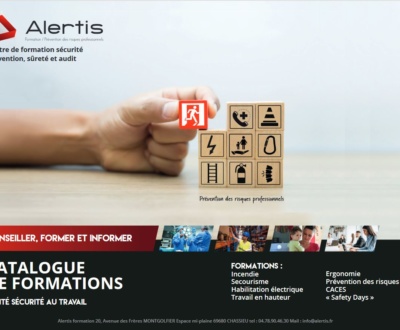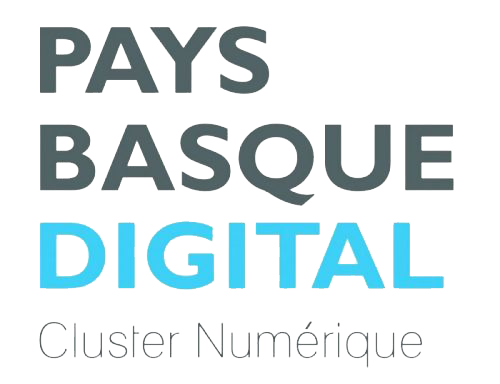SEO Suisse: comment réussir son référencement multilingue
- 22 décembre 2019
- SXO : SEO Marketing
Le SEO, ou référencement naturel, est un domaine complexe et en constante évolution.
Positionner ses pages web tout en haut des pages de résultats des moteurs de recherche, et idéalement de Google, relève donc du défi pour bien des entreprises. En Suisse, le challenge est tout autre. Dans le pays aux quatre langues nationales, un référencement multilingue est quasiment incontournable.
Comment faire alors pour bien référencer un site suisse sur chacune des zones géographiques ? Notre ami Patrick Perret, expert en création de site internet Genève peut le confirmer ! Plusieurs bonnes pratiques existent, mêlant les trois piliers du SEO : technique (attribut hreflang notamment), sémantique (spécificité des langues locales) et netlinking (acquisition de liens locaux d’autorité).
Importance du SEO en Suisse
Le SEO est devenu un outil marketing incontournable pour asseoir la réputation d’une entreprise et développer son image de marque. Cela ne se discute pas, ou en tout cas plus. La Suisse ne fait donc pas exception à la règle. Au contraire, les statistiques relatives aux habitudes de consommation des Suisses sur Internet tendent à confirmer voire intensifier la tendance en territoire helvétique.
Ainsi, selon l’Office fédéral de la statistique (OFS), « plus de 9 personnes sur 10 utilisent internet en Suisse. La quasi-totalité de la population de moins de 55 ans et plus de la moitié des seniors de 75 ans et plus surfent sur le web » (chiffres 2019).
Ces chiffres, particulièrement hauts, positionnent la Suisse légèrement au-dessus des moyennes européennes. Toujours selon l’OFS, les achats en ligne y seraient également au-dessus de la moyenne européenne, une donnée à corréler avec le fait que, au niveau fédéral, plus les revenus sont importants, et plus l’utilisation d’Internet est grande.
Le pays aux quatre langues officielles
En plus de cette propension à utiliser Internet, la Suisse est également un pays singulier. La Confédération possède en effet un paysage linguistique unique, avec pas moins de quatre langues officielles :
- Allemand, regroupé avec le suisse allemand (62,6%),
- Français (22,9%),
- Italien, regroupé avec les dialectes tessinois et italo-grison (8,2%),
- Romanche (0,5%).
À cela viennent s’ajouter des langues non-nationales, en hausse et incluant notamment l’anglais (5,4%), le portugais (3,7%), l’albanais (3,2%), le serbe, croate (2,5%), l’espagnol (2,4%) et d’autres langues diverses (7,7%). Les chiffres montrent donc clairement que certaines langues non-officielles sont davantage représentées que le Romanche, pourtant langue nationale. Une spécificité suisse rendant un peu plus complexe encore le référencement naturel sur sol helvétique.
Enfin, et dans la perspective d’un aperçu global de la situation suisse, il nous faut encore tenir compte des spécificités des langues locales, ce qui a un effet direct sur l’approche sémantique du SEO fédéral. Ainsi, le français de Suisse diffère du français de France (natel plutôt que téléphone portable, nonante plutôt que quatre-vingt-dix). Il en va de même pour l’allemand qui, en plus d’utiliser des mots différents et souvent empruntés au français (trottoir contre Gehsteig, velo contre Fahrrad, coiffeur contre Frisör) et de ne pas utiliser le ß présente un pendant suisse complet : le suisse allemand. Ensemble de dialectes initialement seulement parlé, le suisse allemand commence ainsi à s’écrire, surtout par les nouvelles générations.
Le référencement naturel en Suisse par la technique
Plus que n’importe quel autre pays, la Suisse offre donc au SEO un ensemble linguistique complexe, intégré à un seul et même pays. Heureusement, plusieurs bonnes pratiques permettent de s’en sortir avec les honneurs et de positionner un site efficacement sur les différentes langues ciblées par une entreprise.
Voici les principales.
Extension de nom de domaine et hébergement
Le choix de l’extension nationale .ch, d’un sous-domaine/sous-répertoire (par exemple par langue (fr.monsite.ch ou monsite.ch/fr) ou plutôt d’un .com dépend avant tout de la cible visée (nationale, internationale).
Pour autant, la solution consistant à opter pour un sous-domaine ou un sous-répertoire se prête tout particulièrement aux sites par langues. En plus de clairement délimiter les différentes versions du site, elle constitue une solution particulièrement efficace, proposant des résultats rapides, sans pour autant s’avérer coûteuse pour l’entreprise.
Cette solution ne requiert pas non plus l’hébergement du site sur des serveurs situés en Suisse même si, dans la mesure du possible, il s’agit d’une solution à privilégier. Elle est au contraire vivement recommandée dans le cas d’un domaine générique (.com, .org, .biz), correspondant davantage aux entreprises ayant une visée internationale.
Traduction
Créer un site multilingue implique évidemment de traduire l’ensemble de ses contenus dans l’ensemble des langues visées. Pour autant, le travail de traduction ne s’arrête pas là. Il faut encore veiller à traduire également l’ensemble des éléments techniques, incluant les balises alt (images), les url (url rewriting), les métadescriptions, etc. En l’absence de métadonnées dans la langue correspondante, le crawler (le robot responsable de l’indexation des pages au compte du moteur de recherche) sera confus et risque de mal indexer les pages, voire de ne pas les indexer.
Maillage interne
Le maillage interne d’un site multilingue ne diffère guerre d’un site monolingue. Pour autant, la structure des pages entre elles doit être pensée par version. Il convient donc de ne pas mélanger les langues, sous peine d’installer la confusion dans l’esprit des utilisateurs comme de l’algorithme.
Netlinking
Un bon référencement ne se fait pas sans bon netlinking. Dans le cas d’un site comportant différentes langues, il faut encourager les liens pointant depuis des sites d’autorité, mais également depuis des sites de la langue et des pays ciblés : sites en .ch ou en .com avec du contenu français vers la version française, sites en .ch ou .com avec du contenu en allemand vers la version allemande, etc.
Duplicate content
Enfin, et il s’agit d’un élément particulièrement important, il faut à tout prix éviter de laisser Google penser que votre contenu est dupliqué. L’attribut HTML ahreflang est là pour ça. Placé dans le head d’une page (en-tête), ahreflang permet de spécifier la langue de la page et ainsi éviter le duplicate content.
Il s’utilise de la façon suivante :
<link rel= »alternate » hreflang= »de » href= »https://de.monsite.ch / » />
<link rel= »alternate » hreflang= »it » href= »https://it.monsite.ch / » />
<link rel= »alternate » hreflang= »fr » href= »https://de.monsite.fr / » />
<link rel= »alternate » hreflang= »rm » href= »https://rm.monsite.ch / » />
Bien entendu, une seule des lignes ci-dessus est à placer dans le code d’une page web, correspondant à sa langue.
En suivant ces quelques conseils, il est donc possible de bien référencer organiquement son site web multilingue, même dans un pays aussi complexe linguistiquement que la Suisse.
Spécialiste en growthacking et en e-commerce, vous profiterez de notre expérience pour développer vos contacts et votre chiffre d'affaires en un temps record !
SEOCAmp Paris 2020
Étude de cas du cycle Black Hat
Comment autofinancer sa startup avec un netlinking agressif ? ou l’histoire du lancement d'une plateforme qui sans branding, sans réseaux sociaux, sans partenaires (marketing) et sans mentions légales... a générer 100 000€ avec seulement quelques pages web, un bon marketing et un bon SEO !

Retour sur Investissement
Saviez vous que le référencement google est le pilier central de votre communication ? Sans aucun doute le bras de levier le plus rentable autour duquel doivent s'articuler vos actions publicitaires payantes.
Devis gratuit
Nous offrons des services de référencement professionnel qui aident les sites Web à augmenter considérablement leur score de recherche afin de concourir avec les classements les plus élevés, même en ce qui concerne les mots-clés hautement compétitifs.
Articles récents
- Référencement de Centres de Formation : étude de cas 22 novembre 2022
- Le Cocon Sémantique : Onsite, Onpage, Offsite… tous les Secrets 9 novembre 2022
- Secrets de Ligne Éditoriale SEO avec Christian Méline 9 novembre 2022














